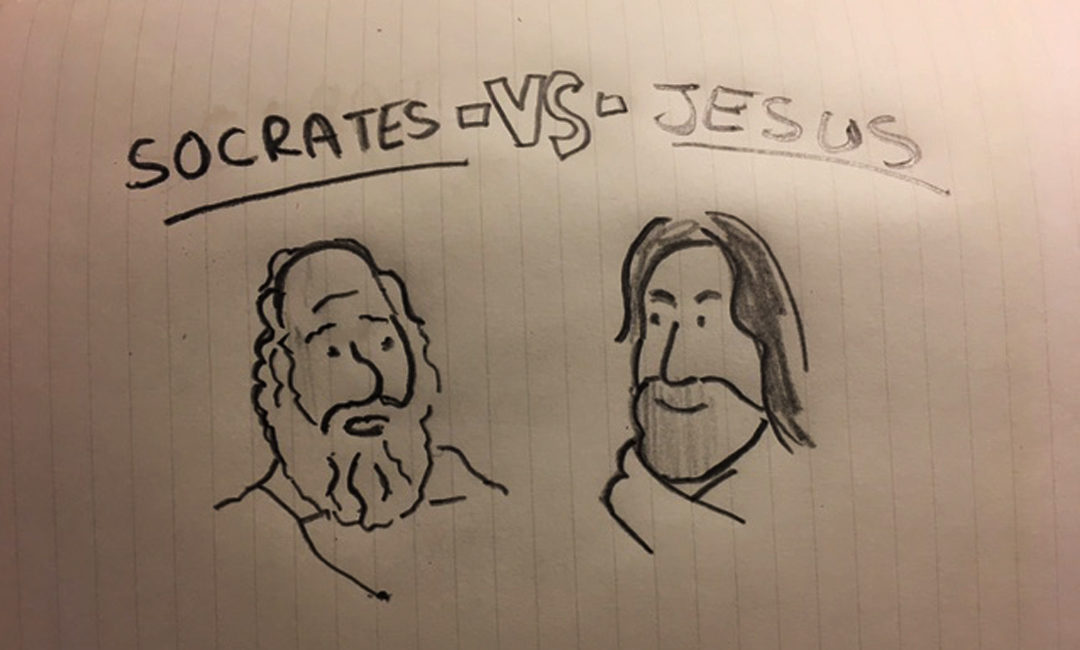I always had my Intro to philosophy students read Plato's Apology (The Greek word means "Defense"), an account of the trial of Socrates, during the first week of our class, because of the portrait contained there of a man wholly dedicated to the life of the mind. Offered the chance to live and go free if he would just stop doing philosophy on the city streets, Socrates said, "As long as I live and breathe, I shall never cease to philosophize." My students were stunned to see an adult, as they would say, committed to a mission, so imbued with a purpose, that he would willingly go to his death rather than recant or change his ways. Such determination! Such passion!
Socrates was intensely committed to truth. And he died for that commitment. Jesus, by contrast, was fully committed to love, and he died for that.
I would suggest that you can be committed to truth without an equal felt commitment to love and compassion, but that you can't really and fully be committed to love without also thoroughly honoring truth. So Socrates had, perhaps, a big part of life's puzzle, but not the whole thing.
An old professor, an orthodox Jewish Rabbi who taught philosophy of science, once said to me, "Christianity is all about what you believe, while Judaism is all about what you do." Well. It's not quite so stark, is it? But I get what he was saying. Since Jesus was a Jew, and so were most of the early Christians, maybe we should dig a bit deeper. Perhaps Christianity is more about an attitude and commitment of the heart than about either the beliefs or the actions that might properly attend that attitude and commitment. We do cherish our beliefs and opinions. We're willing to fight for them. Maybe we should cherish God and his creatures more.
There's this other contrast between Socrates and Jesus. Socrates could come across as arrogant. Jesus, strangely, despite alluding repeatedly to his own literal divinity, seemed to live and preach humility. The trick in life is to have all the right commitments, but with all the right attitudes.
The Greeks didn't appreciate the deep power of humility. Christian theologians have, because of Jesus. In the end, truth may indeed be worth dying for. But it's love that's worth living for.



























